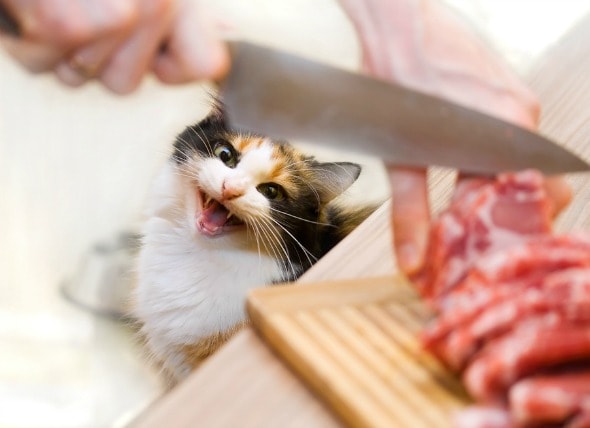
The Benefits of Raw Food for Cats
Cats are predators. They evolved eating a prey-based diet, and more importantly, eating that food raw. Cooking degrades nutrients in meat, causing the loss of vitamins, minerals and amino acids.¹Meat used in highly-processed pet food is cooked at high temperatures. The nutrients lost must be added back. This supplementation is not exact. There are nutrient losses that aren't always replaced. Cats in the wild often eat the entire prey animal if it is small, and will eat nearly everything except the intestines of a larger prey animal. This includes the bones of prey, as raw bone is highly digestible and is their primary source of calcium. Cooking bone reduces the nutrients available, making it brittle and dangerous to ingest.²
Providing your cats with a diet that is modeled on what they would eat in the wild has many benefits, both for you and your cat:
- Improved digestion
- Greatly reduced stool odor and volume
- Healthy coat, less shedding, fewer hairballs
- Increased energy
- Weight loss, if overweight
- Better dental health
- Better urinary health
Improved Digestion
Cats are obligate carnivores, they must eat meat. There are no vegan cats. Their digestive systems are adapted specifically for a meat-based diet. A cat's digestive tract is short and acidic, and processes species-appropriate raw food highly efficiently in about 12 hours. This gives very little time for bacteria to proliferate, so cats are naturally resistant to food poisoning.³
Cats have no requirement for carbohydrates and limited ability to digest them. A raw cat food diet is more digestible than a diet of plant-based foods.⁴ Because they evolved eating a diet with almost no carbohydrates, they have only one enzyme system capable of handling them. This is quite different from humans and dogs, both having multiple enzyme systems that digest carbohydrates.⁵


